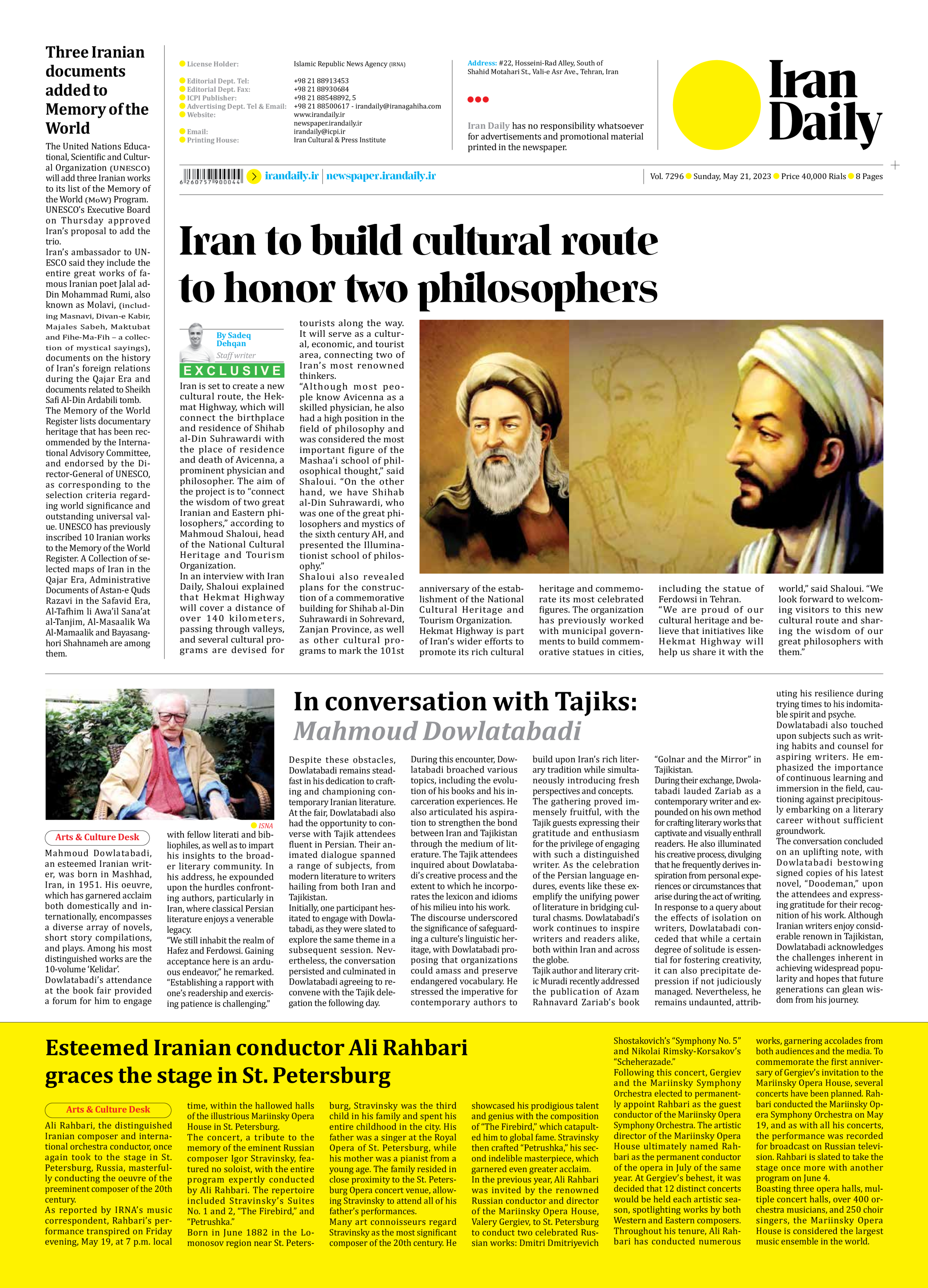
Three Iranian documents added to Memory of the World
The United Nations Educational, Scientific and Cultural Organization (UNESCO) will add three Iranian works to its list of the Memory of the World (MoW) Program.
UNESCO’s Executive Board on Thursday approved Iran’s proposal to add the trio.
Iran’s ambassador to UNESCO said they include the entire great works of famous Iranian poet Jalal ad-Din Mohammad Rumi, also known as Molavi, (including Masnavi, Divan-e Kabir, Majales Sabeh, Maktubat and Fihe-Ma-Fih – a collection of mystical sayings), documents on the history of Iran’s foreign relations during the Qajar Era and documents related to Sheikh Safi Al-Din Ardabili tomb.
The Memory of the World Register lists documentary heritage that has been recommended by the International Advisory Committee, and endorsed by the Director-General of UNESCO, as corresponding to the selection criteria regarding world significance and outstanding universal value. UNESCO has previously inscribed 10 Iranian works to the Memory of the World Register. A Collection of selected maps of Iran in the Qajar Era, Administrative Documents of Astan-e Quds Razavi in the Safavid Era, Al-Tafhim li Awa’il Sana’at al-Tanjim, Al-Masaalik Wa Al-Mamaalik and Bayasanghori Shahnameh are among them.







